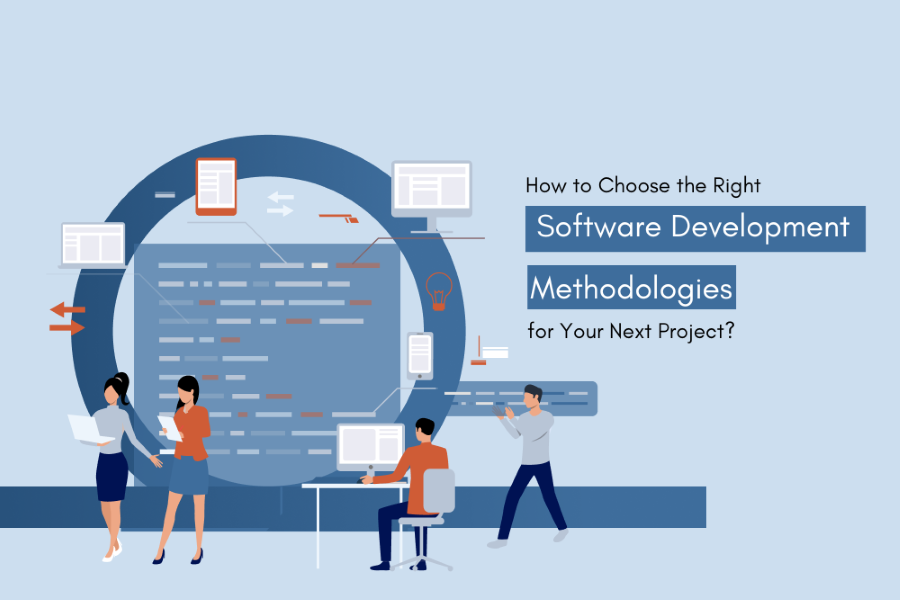
Introduction
In today’s fast-paced digital landscape, software development has evolved significantly. Traditional approaches are being replaced by modern methodologies that emphasize agility, collaboration, and adaptability. These methodologies have revolutionized the way software is built, allowing teams to deliver high-quality products faster and more efficiently.
In this blog, we will explore some of the most prominent modern methodologies of software development, their key principles, and how they are reshaping the industry.
Agile Development
Agile development is perhaps the most well-known and widely adopted modern methodology. It emphasizes flexibility and iterative development, enabling teams to respond quickly to changing requirements and deliver incremental value to customers. The core principles of Agile include customer collaboration, continuous delivery, self-organizing teams, and embracing change.
One of the key practices within Agile is Scrum, which divides work into short iterations called sprints. Scrum fosters close collaboration, transparency, and regular feedback, enabling teams to continuously improve and deliver valuable software.
DevOps
DevOps is a methodology that bridges the gap between software development and operations. It promotes collaboration, automation, and continuous integration and delivery (CI/CD). By breaking down silos and fostering a culture of collaboration, DevOps enables faster and more reliable software releases.
With DevOps, development and operations teams work closely together throughout the software development lifecycle, sharing responsibilities and leveraging automation tools to streamline processes. Continuous integration ensures that code changes are regularly merged and tested, while continuous delivery enables the rapid and automated deployment of software to production environments.
Lean Software Development
Lean Software Development draws inspiration from Lean Manufacturing principles. It focuses on eliminating waste, optimizing efficiency, and maximizing customer value. Lean teams strive for continuous improvement, emphasizing the importance of feedback, small batch sizes, and minimizing handoffs.
Key principles of Lean Software Development include delivering value as early as possible, optimizing the whole system, empowering teams, and relentlessly pursuing quality. By identifying and eliminating non-value-added activities, Lean teams can deliver software faster, reduce defects, and enhance customer satisfaction.
Kanban
Kanban is a visual framework that enables teams to manage and optimize their workflow. It emphasizes visualizing work, limiting work in progress (WIP), and optimizing the flow of tasks. Kanban boards provide a clear overview of the team’s progress, helping to identify bottlenecks and prioritize work effectively.
With Kanban, teams can maintain a steady flow of work, avoid overburdening team members, and deliver value at a sustainable pace. By focusing on transparency and continuous improvement, Kanban fosters a culture of collaboration and efficiency.
Extreme Programming (XP)
Extreme Programming (XP) is an agile methodology that emphasizes high-quality software and rapid feedback. It promotes practices such as test-driven development (TDD), pair programming, continuous integration, and frequent releases. XP places a strong emphasis on customer involvement and embraces change throughout the development process.
By employing XP practices, teams can ensure the delivery of software with minimal defects, high maintainability, and customer satisfaction. Pair programming fosters collaboration and knowledge sharing, while TDD ensures that software is thoroughly tested and reliable.
In conclusion, the modern methodologies of software development have revolutionized the industry and become essential for organizations seeking to stay competitive in the digital era. By adopting Agile development, DevOps, Lean Software Development, Kanban, Extreme Programming, and other innovative approaches, businesses can streamline their software development processes, enhance collaboration, and deliver high-quality products to their customers.
Lean Software Development eliminates waste and maximizes customer value, driving efficiency and enhancing the overall software development process. Kanban provides teams with a visual framework to manage their workflow, optimize productivity, and promote a culture of transparency and continuous improvement. Extreme Programming focuses on delivering high-quality software through practices such as test-driven development and frequent feedback.
Final thoughts
By leveraging these methodologies, businesses can reap the benefits of improved productivity, faster delivery cycles, enhanced collaboration, and higher customer satisfaction. However, it is important to note that selecting the right methodology or combination of methodologies depends on the specific needs and context of each project. Organizations should carefully evaluate their requirements and consider working with experienced software development services providers who can tailor the methodologies to their unique needs.
